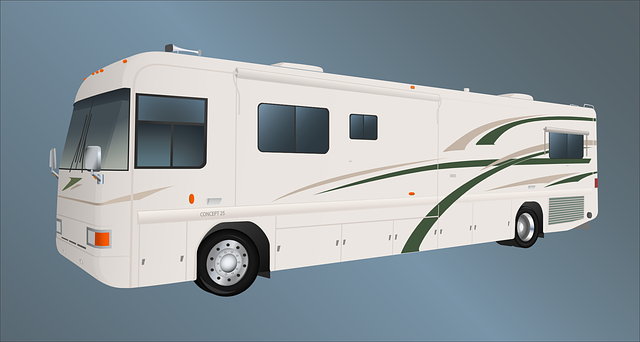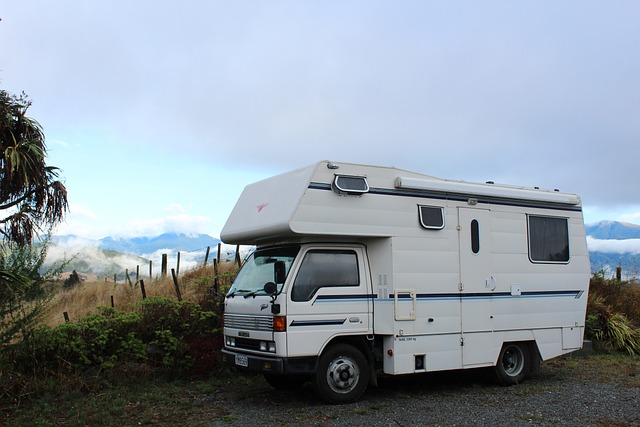When outfitting your RV with a solar power system, choosing the right RV battery is crucial for reliable and sustainable energy. Lithium iron phosphate (LiFePO4) batteries are a top choice due to their high energy density, long lifespan, and ability to charge quickly, which makes them ideal for storing solar power. For those who prefer traditional lead-acid technology, AGM or gel cell batteries remain popular for their durability and resilience to frequent discharge and recharge cycles. Regardless of the type you select, it's important to ensure your solar panel array is adequately sized—at least twice your battery capacity—to handle daily power needs and accommodate fluctuations in solar energy availability. Advanced power management systems can further enhance efficiency and extend the life of your RV batteries. With careful selection and system optimization, you can enjoy a self-sufficient, off-grid experience powered by renewable solar energy while traveling in your RV.
Exploring the synergy between RV batteries and solar power, this comprehensive guide delves into the most effective RV battery options for harnessing solar energy. We’ll dissect the compatibility of various RV batteries with solar power systems, highlight top models for superior energy storage, and compare lithium and lead-acid technologies. By examining deep-cycle batteries’ integration with solar setups, we’ll provide insights into advanced features to prioritize in your solar-ready battery selection. This article also offers essential maintenance tips to ensure longevity of your RV’s energy autonomy when paired with a solar system. Discover cost-effective solutions that elevate your RV’s solar efficiency, enabling you to maximize your energy independence on the road.
- Understanding RV Battery Compatibility with Solar Power Systems
- Top RV Batteries for Optimal Solar Energy Storage
- Lithium vs. Lead-Acid: The Best Choice for Your Solar Setup
- Deep-Cycle RV Batteries: A Closer Look at Their Solar Integration
- Advanced Features to Consider in Solar-Ready RV Batteries
- Maintenance Tips for Long-Term Solar Power Performance in RV Batteries
- Cost-Effective RV Battery Solutions for Enhanced Solar Efficiency
- Maximizing Your RV's Energy Autonomy with the Right Battery and Solar Setup
Understanding RV Battery Compatibility with Solar Power Systems

When integrating solar power into your RV, it’s crucial to select an RV battery that harmonizes with the solar panels’ energy production. RV batteries, specifically deep-cycle lead-acid or lithium-ion types, are designed to handle the deep discharge cycles typical of solar applications. To ensure compatibility and optimal performance, consider the voltage requirements of your solar power system. Most residential solar systems operate at 12 volts for a single battery or 24 volts for dual batteries, which should match your RV’s electrical system.
Choosing the right RV battery for solar power involves more than just matching voltages; it also includes assessing capacity, efficiency, and lifespan. Deep-cycle lead-acid batteries, such as flooded or AGM models, are traditional favorites due to their reliability and cost-effectiveness. However, lithium RV batteries have emerged as a high-performance alternative, offering greater energy density, faster recharge rates, and a longer lifespan. These benefits make them particularly suited for the demands of solar power applications, where maintaining a consistent charge is essential. Regardless of your preference, ensure that the battery’s capacity aligns with your energy needs and that it can be fully charged by your solar setup to maximize the benefits of renewable energy in your RV adventures.
Top RV Batteries for Optimal Solar Energy Storage

When integrating solar power into your RV setup, selecting the right RV battery is crucial for optimal energy storage and performance. RV batteries, particularly those designed with deep-cycle capabilities, are tailored to handle the frequent discharge and recharge cycles associated with solar energy systems. Lead-acid models, such as the traditional flooded lead-acid (FLA) batteries, have been the go-to for many years, offering a reliable and cost-effective solution. However, with advancements in battery technology, AGM (Absorbent Glass Mat) and gel cell batteries are gaining popularity due to their enhanced durability and resistance to vibration and shocks, which is particularly beneficial given the mobile nature of RV travel.
Lithium RV batteries represent the cutting edge in solar energy storage for RVers. They boast a longer lifespan, higher energy density, and lighter weight compared to traditional lead-acid options. Lithium iron phosphate (LiFePO4) batteries, in particular, are a favorite among solar enthusiasts due to their safety and impressive cycle life. These modern batteries not only store more energy but also handle the deep discharges that are common with solar applications. When paired with a well-designed solar panel array, the right RV battery can ensure that your off-grid experiences are powered reliably and sustainably. Always consider the capacity, power output, and compatibility with your RV’s energy needs when selecting an RV battery for your solar setup.
Lithium vs. Lead-Acid: The Best Choice for Your Solar Setup

When integrating solar power into your RV setup, selecting the right battery technology is paramount to optimize efficiency and longevity. Lithium vs. Lead-Acid batteries present distinct advantages and considerations for RVers. Lithium batteries, such as lithium iron phosphate (LiFePO4) models, are renowned for their high energy density, which translates to a longer runtime and the ability to handle the deep discharge cycles that solar setups often require. They are lighter in weight compared to traditional lead-acid options, offering more flexibility in installation and payload capacity. Additionally, lithium batteries have a longer lifespan, with the potential to cycle upwards of 10,000 times at a 90% depth of discharge (DoD), making them a durable choice for long-term use.
On the other hand, lead-acid batteries have been the go-to option for many years and are well-understood by technicians and users alike. They offer reliable performance and are generally more affordable upfront than lithium equivalents. However, their lower energy density means they require more physical space and may not be as efficient in the long run, especially in applications where solar power is a primary energy source. Lead-acid batteries also have a shorter lifespan due to their less robust construction under repeated deep discharges, which can be common in solar setups. When choosing between lithium and lead-acid RV batteries for your solar power solution, consider factors such as initial cost versus long-term savings, weight considerations, space constraints, and the frequency of charging cycles. Lithium batteries, while initially more expensive, may offer better value over time due to their longer lifespan and efficiency, making them a compelling choice for RVers invested in sustainable off-grid energy solutions.
Deep-Cycle RV Batteries: A Closer Look at Their Solar Integration

When integrating solar power into an RV setup, selecting the right type of battery is paramount for optimal energy storage and efficiency. Deep-cycle RV batteries are specifically designed to handle the demands of renewable energy systems, including those powered by solar panels. Unlike their conventional counterparts, deep-cycle batteries are engineered to be regularly deeply discharged, making them ideal for the daily charge and discharge cycles typical in solar applications. Their robust construction allows for a longer lifespan and more stable performance over time.
These batteries offer a high capacity for storing energy harvested from solar panels, ensuring that RV owners have a consistent power supply for their electrical needs, even during extended off-grid periods. The lead-acid or AGM (Absorbed Glass Mat) types are particularly popular among RV enthusiasts due to their reliability and ability to withstand the movement and vibrations associated with RV travel. Additionally, lithium-ion deep-cycle batteries are gaining traction in the RV community for their lightweight nature and superior energy density, which can be advantageous when optimizing space and power requirements in solar setups. Regardless of the technology chosen, the key to successful solar integration lies in the battery’s ability to handle frequent and often substantial discharges while maintaining a long service life. This is why deep-cycle RV batteries remain a cornerstone for those looking to harness solar energy effectively in their recreational vehicles.
Advanced Features to Consider in Solar-Ready RV Batteries

When exploring solar-ready RV batteries, understanding the advanced features that enhance their performance and longevity is crucial for sustainable energy use on the road. High-capacity lithium rv batteries, for instance, offer a superior energy density compared to traditional lead-acid options, making them more efficient for storing the power generated by solar panels. A key feature to consider in these batteries is their ability to handle high current loads without degrading performance, which is essential for powering RV appliances during peak usage times. Additionally, the integration of battery management systems (BMS) is a vital aspect as it ensures optimal operation by monitoring voltage levels, temperature, and state of charge, thus protecting the battery from overcharging or deep discharge that could shorten its lifespan. Batteries with built-in Bluetooth or Wi-Fi connectivity allow for real-time monitoring and management of energy usage, providing RV owners with greater control and adaptability to their power needs. Another important feature is the battery’s ability to handle multiple charging sources, not just solar but also alternators and generators, which can be particularly useful in varying environmental conditions. When selecting an rv battery for solar power solutions, it’s important to evaluate these features to ensure they align with your energy consumption habits and the capacity of your solar setup. This will guarantee a seamless integration of renewable energy into your RV adventures, ensuring that you have a reliable power source wherever your travels take you.
Maintenance Tips for Long-Term Solar Power Performance in RV Batteries

When leveraging solar power solutions for your RV, the longevity and efficiency of your RV batteries are paramount to ensure a steady energy supply during your travels. Proper maintenance is key to preserving the performance of these batteries over time. Firstly, regularly monitor the charge levels and avoid overcharging, as this can severely diminish the lifespan of the battery. Use a smart solar charger controller that regulates voltage and current automatically, protecting your RV battery from the wear and tear caused by excessive charging.
Additionally, keep your batteries clean and free from corrosion. Regularly wash the battery terminals and connectors with a mixture of baking soda and water to remove any grime or oxidation. This not only improves conductivity but also ensures that the battery can accept and hold a charge more effectively. It’s also crucial to keep the batteries in an optimal temperature range; both extreme heat and cold can impair their performance. Insulate your batteries with a vented cover to protect them from environmental factors. Regularly check the water levels in flooded lead-acid batteries, topping off the electrolyte solution as needed to maintain proper chemistry within the cells. By following these maintenance tips, you can ensure that your RV batteries continue to provide reliable power for all your solar energy needs throughout the years. Regular inspections and proactive upkeep will not only extend the life of your batteries but also enhance their ability to store and deliver energy efficiently in a solar power setup.
Cost-Effective RV Battery Solutions for Enhanced Solar Efficiency

When integrating solar power into your RV, selecting a cost-effective rv battery that offers enhanced efficiency and longevity is paramount. Deep cycle batteries are often favored for their ability to handle frequent discharge and recharge cycles without compromising performance. Lead-acid options have been the traditional choice, but they’re being increasingly replaced by more modern alternatives like AGM (Absorbent Glass Mat) and lithium rv batteries. AGM batteries, for instance, are spill-proof and offer a longer lifespan than their lead-acid counterparts. Additionally, they can handle higher charge and discharge rates, making them suitable for the fluctuating energy demands of an RV powered by solar panels.
Lithium rv batteries, on the other hand, are becoming the preferred choice due to their superior energy density, lighter weight, and higher cycle life compared to AGMs and lead-acid batteries. They also have a lower self-discharge rate, which means they retain more charge over extended periods. For those looking for a cost-effective solution that still delivers on performance and reliability, lithium batteries represent an investment in the sustainability of your RV’s energy system. When paired with efficient solar panels and a well-designed charging system, these batteries ensure that you can harness the full potential of solar power, reducing your reliance on external power sources and lowering operational costs over time.
Maximizing Your RV's Energy Autonomy with the Right Battery and Solar Setup

When embarking on an RV adventure, energy autonomy is key to ensuring uninterrupted comfort and functionality. The right RV battery paired with a solar setup is instrumental in this regard, as it allows for the harnessing of clean, renewable power directly from the sun. Lithium or deep-cycle lead-acid batteries are among the top choices for RVers; lithium options like the LiFePO4 (lithium iron phosphate) battery offer high energy density, long lifespans, and rapid charging capabilities, making them an excellent match for solar panels. For those opting for traditional lead-acid batteries, AGM (Absorbent Glass Mat) or gel cell varieties are robust and reliable, capable of withstanding the rigors of travel and frequent discharge/recharge cycles.
To maximize your RV’s energy autonomy, it’s crucial to match your battery capacity with an appropriately sized solar array. A rule of thumb is to install a solar setup that is at least twice the size of your battery bank to account for daily energy usage and to keep your batteries charged throughout variable weather conditions. The efficiency of your solar power system can be further enhanced by utilizing power management systems, which optimize charge and discharge cycles to preserve battery health and extend their lifespan. By selecting the right RV battery and tailoring your solar setup to your energy needs, you can achieve a sustainable and self-sufficient off-grid lifestyle, ensuring that your adventures are powered by the sun’s boundless energy.
When venturing off the grid, selecting the right RV battery that harmonizes with solar power is paramount for uninterrupted energy supply. This article has illuminated the various factors to consider, from understanding compatibility and the advantages of lithium over lead-acid batteries, to maintenance strategies that ensure long-term performance. The top RV batteries suitable for solar energy storage stand out for their efficiency and durability, offering RV enthusiasts a cost-effective solution to enhance solar efficiency. By integrating these insights into your solar setup, you can maximize your RV’s energy autonomy, making each journey more sustainable and comfortable. Whether you’re an experienced RVer or just starting out, the right battery choice combined with solar power will empower you to embrace the adventures that lie ahead.
